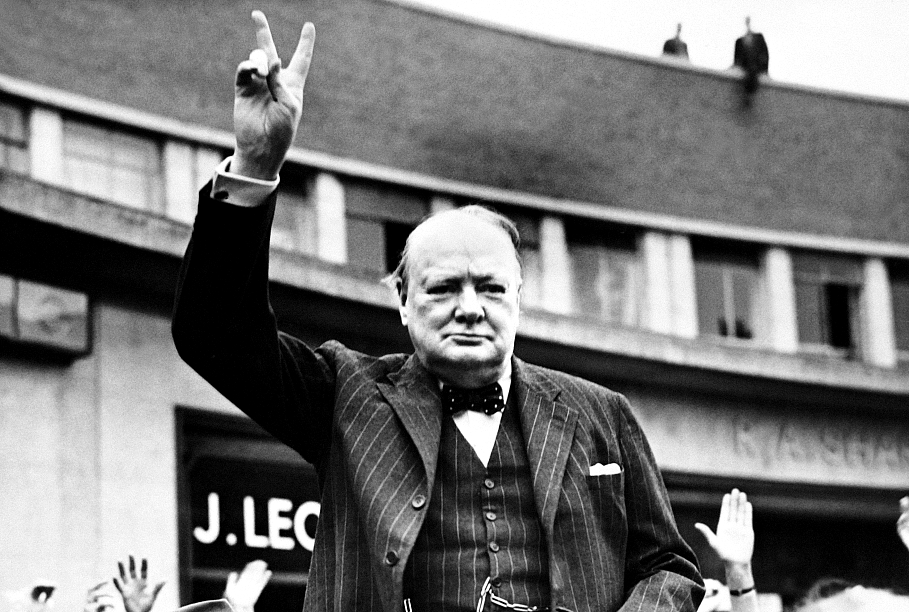During the Second World War, Great Britain was governed by a coalition cabinet, which included representatives of all the major parties. The position of prime minister was held by the conservative or Tory leader Winston Churchill, the deputy prime minister was the leader of the Labor Party, Clement Attlee. Parliamentary elections were canceled during the war, and so a full ten years passed between the last peacetime parliamentary elections in 1935 and the first post-war ones on 5 July 1945.
In the pre-election campaign, the Conservatives put the main emphasis on their leader – Prime Minister Winston Churchill.
His popularity at the end of the war was great, his merits were undoubted, but the outstanding wartime leader had not particularly proven himself in peacetime politics. On the other hand, the party led by him was remembered by a large part of society as the force that steered Britain for most of the interwar period, implementing a policy consistent with its ideological principles: individualism, preservation of inherited privileges, self-evident inequality in the distribution of social benefits.
Many veterans of the First World War remembered how, after returning from the hell of the trenches, unemployment and a housing crisis awaited them at home. The lower and middle classes did not want to experience this again, so they listened enthusiastically to the Labor program: publicly funded health care, secondary education and housing construction, a universal social insurance system with guaranteed pensions and benefits, extensive nationalization, economic planning, the development of labor rights.
Churchill and the Tories in the War Cabinet had mainly dealt with military and foreign affairs, while Labor Deputy Prime Minister Attlee, Home Secretary Herbert Morrison and Labor Secretary Ernest Bevin had confirmed that they were the right men to build a more equal and prosperous post-war Britain.
The result was a resounding victory for Labour: for the first time in its history, this party won a majority in parliament, while the Tories suffered their heaviest defeat in their history.
Clement Attlee’s Labor government consistently implemented its reform plans. The National Health Service, the still existing British publicly funded medical system, was established; completely re-created modern social insurance, extended construction of social housing, granted subsidies for renovation and favorable loans for construction of private houses, eradicated gender inequality inherited from the past, radically improved the legal status of workers.
The Bank of England, the telecommunications company “Cable and Wireless”, the railway network, coal and gas mining, metallurgical companies were nationalized.
Namely, the foundations of the modern welfare state were laid.
During Attlee’s time, the process of decolonization began as the British Empire began to transform into the Commonwealth of Nations. India, Pakistan, Myanmar, Sri Lanka, Israel, Jordan gained independence in the second half of the 1940s. Also, Attlee’s cabinet saw the beginning of the Cold War. The Prime Minister himself initially looked at relations with the Soviet Union cautiously, but rather conciliatoryly, which could not be said about the Minister of Foreign Affairs, Ernest Bevin, a staunch anti-communist. However, when Stalin brought one Eastern European country after another under Soviet control, Attlee also changed his position and Britain became the most reliable ally of the United States of America against Stalinism in Europe and elsewhere in the world.
–
Highlight the text and press Ctrl+Enterto send the text fragment to be corrected to the editor!
Highlight the text and press on Report a bug buttons to send the text fragment to be corrected to the editor!
–
–


